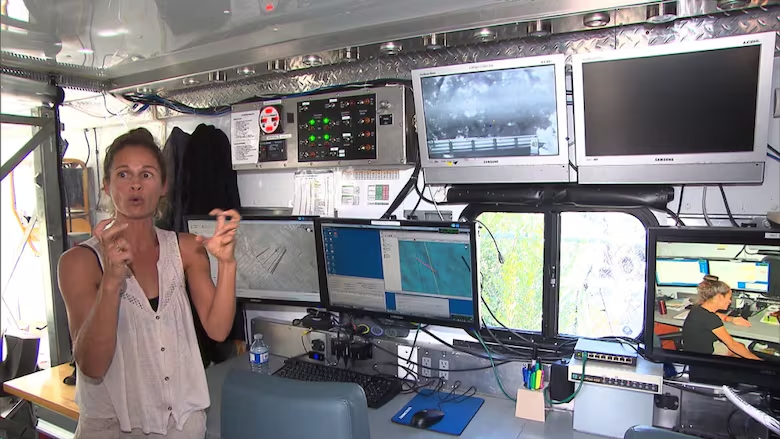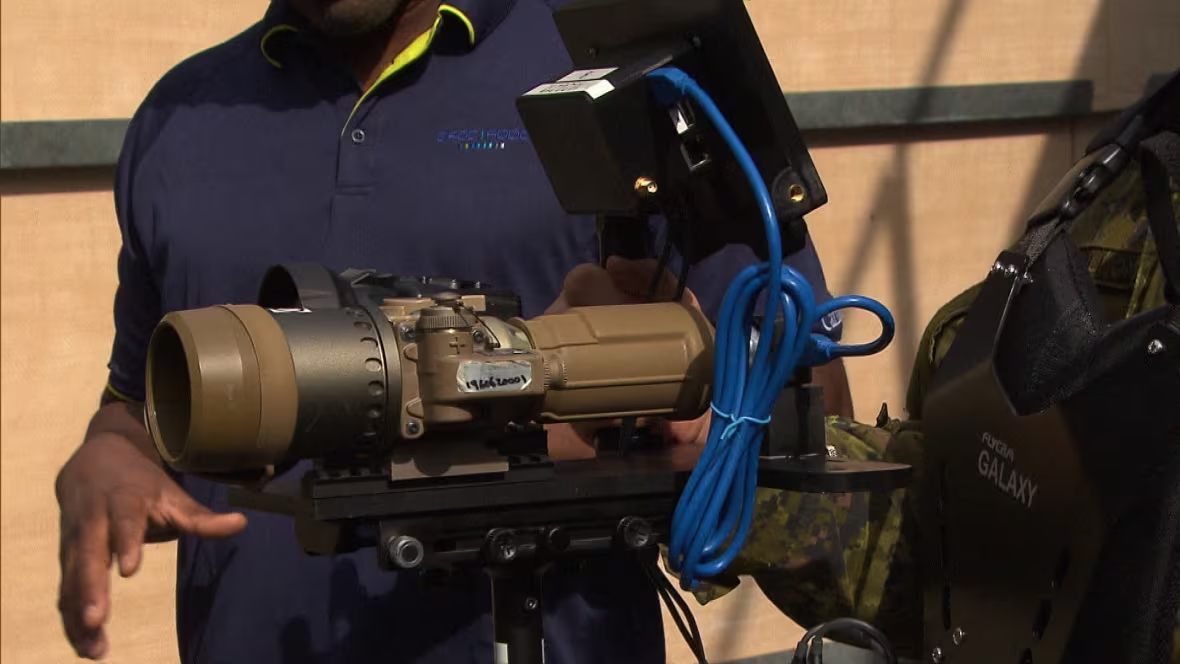Why 'soldiers of the future' are training in Montreal
Drones, internet-connected vests and exo-skeletons will be put to the test in urban environments

If you see soldiers walking down the street in downtown Montreal with high-tech gear on Monday, there's no need to worry about an imminent military threat.
They'll be taking part in a training operation focused on support and reconnaissance in urban environments.
The soldiers won't be armed, and the operation director says you should feel free to ask them about what they're doing.
"It's a completely controlled environment," said Patrick Maupin, who is the experimentation director for the Contested Urban Environment operation.
"The cluster is not aggressive."
It's part of The Technical Co-operation Program (TTCP), which includes personnel from the United States, the United Kingdom, Australia and New Zealand.
Maupin said Montreal presents unique operational challenges for the soldiers, with its diverse buildings and terrain.
Some 150 scientists and 80 soldiers are putting prototype gear to the test. The soldiers will be operating on the sidewalks of de la Montagne Street during the day. At night, when the park is closed to the public, they'll also be operating on Mount Royal.

"There's a lot of new gadgets that look fun to use and experiment with," said Maj. Kim Berriault of the Royal 22nd Regiment of the Canadian Armed Forces.
He said that not only is it important to provide feedback to the scientists who are developing this technology, but that such exercises also help soldiers from the participating countries work together and learn from each other.
Support and recon in urban environments
There are three scenarios in which the soldiers will be honing their skills and learning how to use this new technology: gathering intelligence on an urban environment, providing support to soldiers in an urban environment and protecting a perimiter.
To test their biological weapons detection equipment, the Forces will be operating at Silo No. 5, an abandoned industrial site by the Farine Five Roses building in the Old Port.
A mobile detection station and flying drones will be used in that operation. Montrealers need not be concerned, however; the substance they'll be using in an attempt to stump the tech is powdered egg whites.
Using this long-distance detection material, "you don't have to be within the cloud to know that there is potentially threatening material there," said Dr. Sylvie Buteau, a physicist who is taking part in the operation.

At the Côte-des-Neiges Armoury on Thursday, some of the technology was on display as soldiers were learning how to use it.
That included a network-connected tactical vest, which can be used to transmit video and location data, text messages and email, so that the soldier of the future need not worry about mishearing orders over the radio.
Soldiers will also be making use of motorized exo-skeleton technology, which can help them lift heavy objects and for longer stretches of time.
That's especially useful in urban environments, where soldiers quickly move up and down buildings, said Maupin.
Soldiers are also being trained on how to erect portable structures that can withstand ballistic and fragmentation damage and be constructed in 45 minutes.
This is the second of four such operations, where military personnel from the five countries use these new technologies in different environments. Last year they were in Adelaide, Australia, and they will be operating in the United States in 2019 and the United Kingdom in 2020.
The Montreal-based operation is taking place from Sept. 10 to 21.
With files from CBC reporter Shawn Lyons.